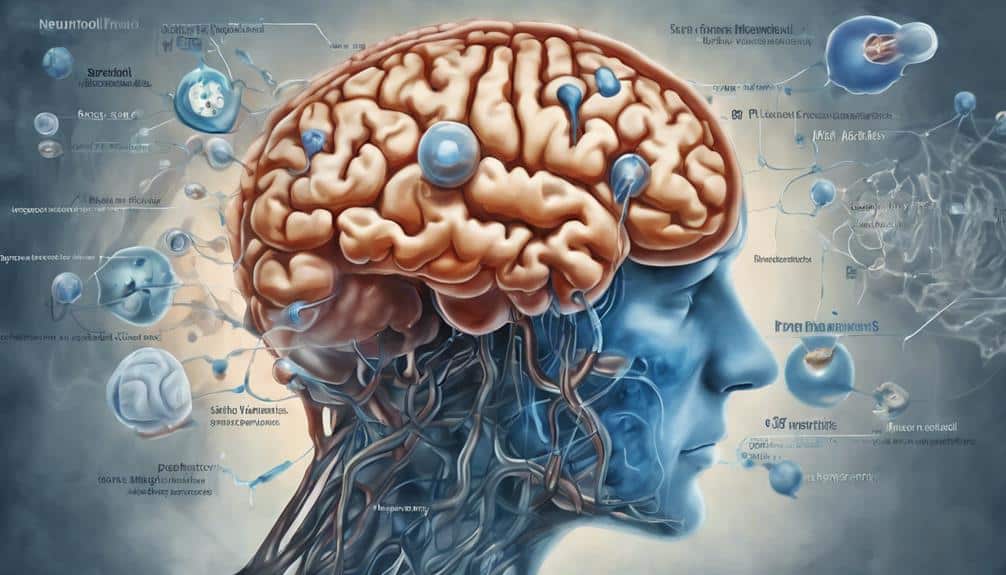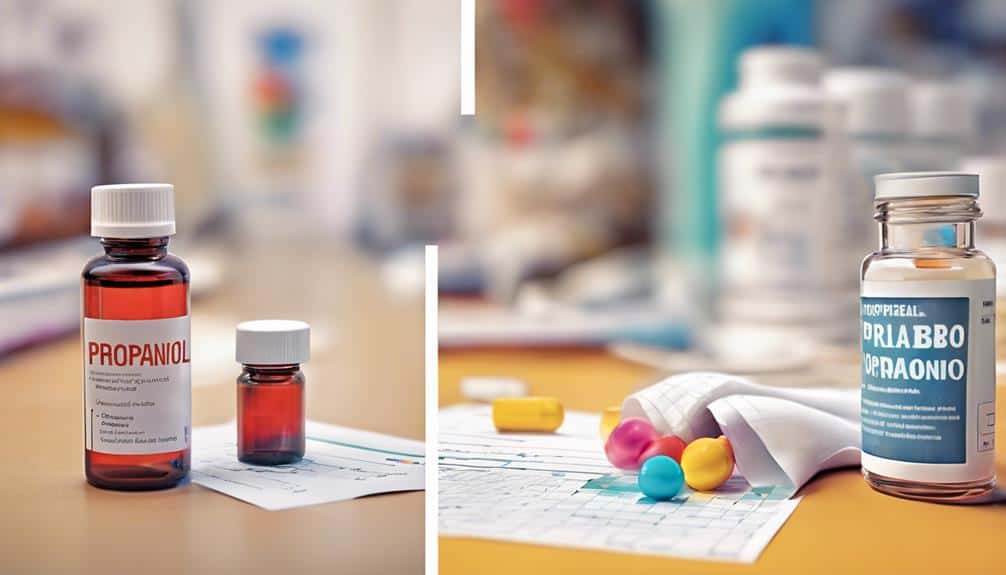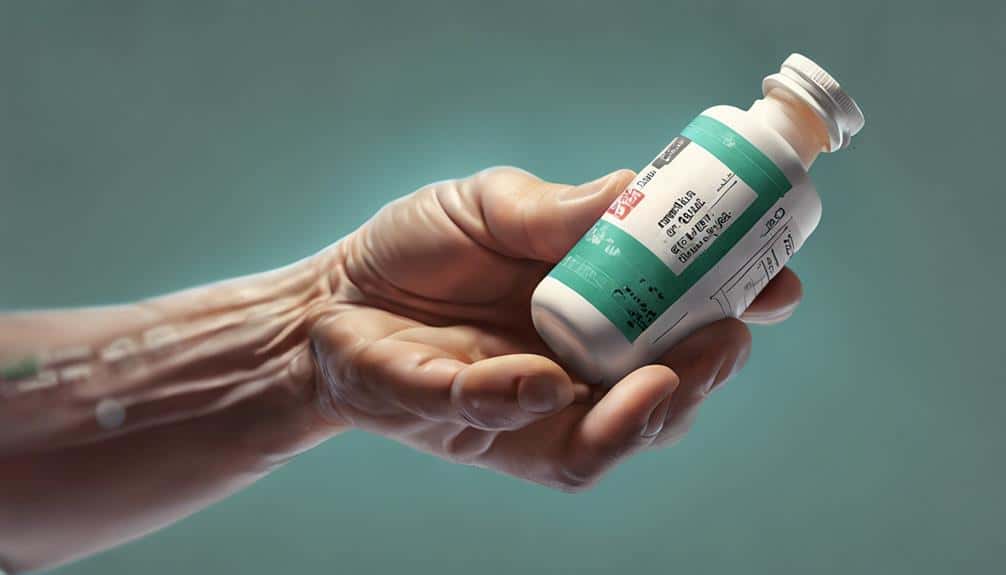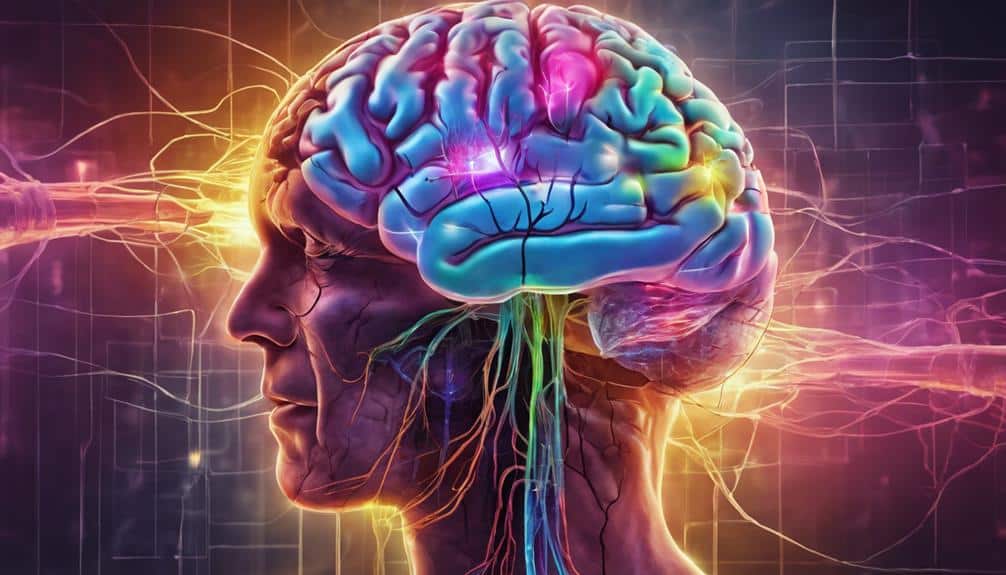Propranolol for Adhd
Having gained attention as a potential adjunctive therapy for ADHD, propranolol offers a unique perspective in addressing symptom management.
Its role in mitigating certain aspects of ADHD, especially in individuals struggling with anger-related issues, has sparked curiosity and debate within the medical community.
As we explore the nuances of propranolol's efficacy and safety profile in ADHD treatment, intriguing insights emerge, hinting at a broader impact on how we approach neurodevelopmental disorders.
Key Takeaways
- Propranolol effectively reduces temper outbursts and hyperactivity in ADHD.
- High responder rate (85%) in treating ADHD symptoms with propranolol.
- Valuable as a co-medication for ADHD, particularly in managing aggression.
- Propranolol shows promise in improving specific ADHD symptoms like anger outbursts.
Mechanism of Action

Propranolol functions as a beta blocker by inhibiting the stimulating effects of adrenaline and noradrenaline on beta-adrenoceptors. By doing so, it reduces the hyperactivity and temper outbursts associated with conditions like attention deficit disorder (ADD) and attention deficit hyperactivity disorder (ADHD). In adults, especially when used as co-medication, propranolol has shown promise in managing symptoms related to ADHD, particularly aggression and anger outbursts.
The mechanism of action of propranolol involves its interaction with beta1-adrenoceptors affecting cardiac output, blood pressure, and kidney function, as well as with beta2-adrenoceptors in bronchi, uterus, and blood vessels. This dual action helps in counteracting the sympathetic nervous system's stimulating effects on various organ systems. Additionally, some beta blockers, including propranolol, exhibit intrinsic sympathomimetic activity, influencing their efficacy in managing cardiac conditions and vascular resistance.
Understanding the mechanism by which propranolol acts as a beta blocker sheds light on its potential role in addressing symptoms of ADHD, particularly in adults where managing hyperactivity and emotional dysregulation is essential.
Efficacy in Clinical Trials

In clinical trials evaluating its efficacy, findings have suggested that propranolol exhibits promising results in improving symptoms associated with ADHD, particularly in addressing temper outbursts and attention deficits.
Studies have shown that propranolol monotherapy achieved an 85% responder rate in treating ADHD symptoms, indicating its potential as an effective intervention. Additionally, research indicates that propranolol may serve as a beneficial co-medication for ADHD, especially in cases where aggression or anger issues are prominent.
Remarkably, improvements in ADHD symptoms have been reported in adults with anger outbursts when treated with propranolol, highlighting its efficacy across different age groups. The evidence supports propranolol's role in addressing specific symptoms of ADHD, suggesting its usefulness in managing certain aspects of the disorder.
Side Effects and Considerations

Exploring the potential considerations and side effects associated with the use of propranolol for ADHD treatment reveals important factors to take into account for individuals considering this medication option. Common side effects of propranolol include headache, nausea, dizziness, and lightheadedness, while serious reactions may include hallucinations, depression, muscle weakness, and allergic responses. Managing these side effects involves adhering to prescribed dosages, monitoring reactions closely, and adopting a healthy lifestyle.
Long-term use of propranolol in ADHD treatment can lead to weight gain, exacerbation of certain side effects, and heightened risks of heart-related issues. Understanding propranolol interactions, precautions, and benefits is essential. It's vital to monitor heart rate, gradually taper off the medication when needed, and recognize its effectiveness in reducing heart rate and blood pressure. By being aware of these potential side effects, interactions, and precautions, individuals can make informed decisions about incorporating propranolol into their ADHD management plan.
Dosage and Administration

To effectively manage ADHD with propranolol, understanding the appropriate dosage and administration guidelines is essential for optimizing treatment outcomes. The typical starting dose for propranolol in ADHD is 20 mg twice daily. This dosage can be gradually increased up to 60-120 mg daily based on individual response and tolerability. It's important to administer propranolol consistently, with or without food, at the same times each day for best effectiveness.
In cases of liver or kidney impairment, dosage adjustments may be necessary to avoid drug accumulation and potential adverse effects. When discontinuing propranolol treatment, it's important to taper off gradually to prevent rebound hypertension or other withdrawal symptoms. Regular monitoring of blood pressure, heart rate, and side effects is crucial throughout the course of propranolol therapy for ADHD to guarantee safety and efficacy.
Future Research and Implications

Researching the potential efficacy of propranolol in managing specific symptoms like aggression or anxiety in individuals with ADHD is a key focus for future studies. Understanding the implications of using propranolol in ADHD treatment extends beyond symptom management; it may offer benefits for patients with comorbid conditions like hypertension.
Ongoing research endeavors are dedicated to determining the best dosing regimens and establishing the long-term safety profile of propranolol in managing ADHD. Additionally, exploring propranolol's role in addressing symptoms such as impulsivity and emotional dysregulation is an important aspect of upcoming studies.
Unraveling the pharmacological mechanisms of propranolol in ADHD holds promise for developing targeted interventions and personalized treatment strategies. As future investigations progress, the insights gained from these studies may pave the way for more effective and tailored approaches to utilizing propranolol in the management of ADHD and its associated symptoms.
Frequently Asked Questions
Is Propranolol Good for Adhd?
Propranolol's efficacy for ADHD varies; it can benefit specific symptoms like anger. Side effects can occur, requiring proper dosage and monitoring. Long-term benefits may exist in combination therapy. Alternative treatments and patient experiences should be considered.
What Adrenaline Blockers Are Used for Adhd?
Adrenaline blockers, like propranolol, regulate adrenaline levels, potentially enhancing focus, supporting behavioral therapy. Medication alternatives should consider side effects, dopamine levels, cognitive function, neurotransmitter balance, academic performance, and emotional regulation for a all-encompassing approach.
What Is the Best Medication for ADHD and Anxiety?
When considering the best medication for ADHD and anxiety, it is essential to weigh medication effectiveness, side effects, and long-term effects. Dosage, cognitive benefits, and behavioral therapy are pivotal factors in managing comorbid conditions effectively.
How Does Propranolol Affect Adderall?
Propranolol interacts with Adderall, affecting heart rate, focus, and ADHD symptoms. Side effects, dosing recommendations, and essential benefits are pivotal. The combination optimizes neurotransmitter balance, potentially enhancing cognitive function.
Conclusion
To sum up, propranolol shows promise as a co-medication for managing ADHD symptoms, particularly in cases of anger outbursts. While further research is needed to fully understand its efficacy and potential side effects, current studies suggest a high responder rate in improving symptoms.
As the saying goes, 'don't judge a book by its cover,' beta-blockers like propranolol may offer unique benefits in addressing specific ADHD challenges, highlighting the importance of individualized treatment approaches in mental health care.







